
Modals of deduction present Interactive worksheet
Exercise 1 Choose all the correct modal verbs of deduction for each gap below. In some sentences there are TWO possible correct answers. Page 1 of 2 1 Paul is behaving in a very unusual way. I think he ______ again. a. can't drink b. can be drinking c. might be drinking 2 I think there ______ a mistake in your tax return. You should check it.

Modals of Deduction Worksheet Deduction, Verb worksheets, Worksheets
Exercise 1 Choose the correct modal verb or expression for speculation and deduction to complete the sentences below. 1 Yesterday I fell running and I think I my ankle. 2 He the competition. He's the best by far. 3 The light in Scot's room is on. He computer games. 4 He German very well. He's only lived in Germany for one month.
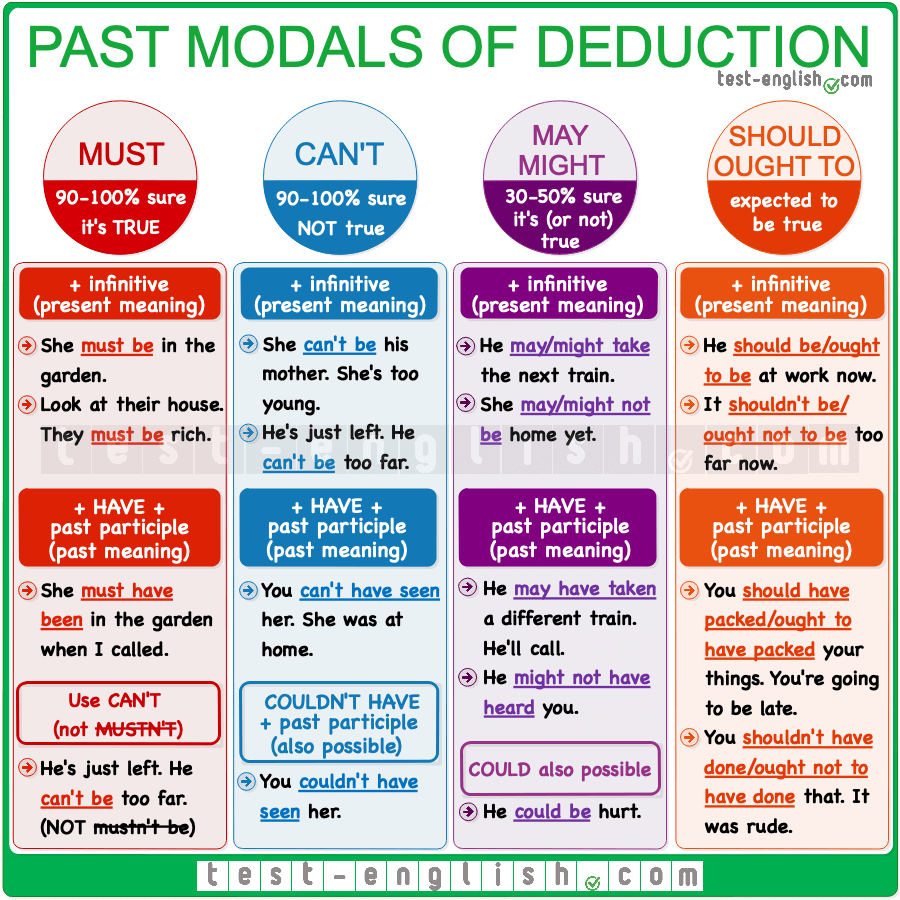
Past modal verbs of deduction TestEnglish
Grammar test 1 Read the explanation to learn more. Grammar explanation We can use modal verbs for deduction - guessing if something is true using the available information. The modal verb we choose shows how certain we are about the possibility. This page focuses on making deductions about the present or future. must
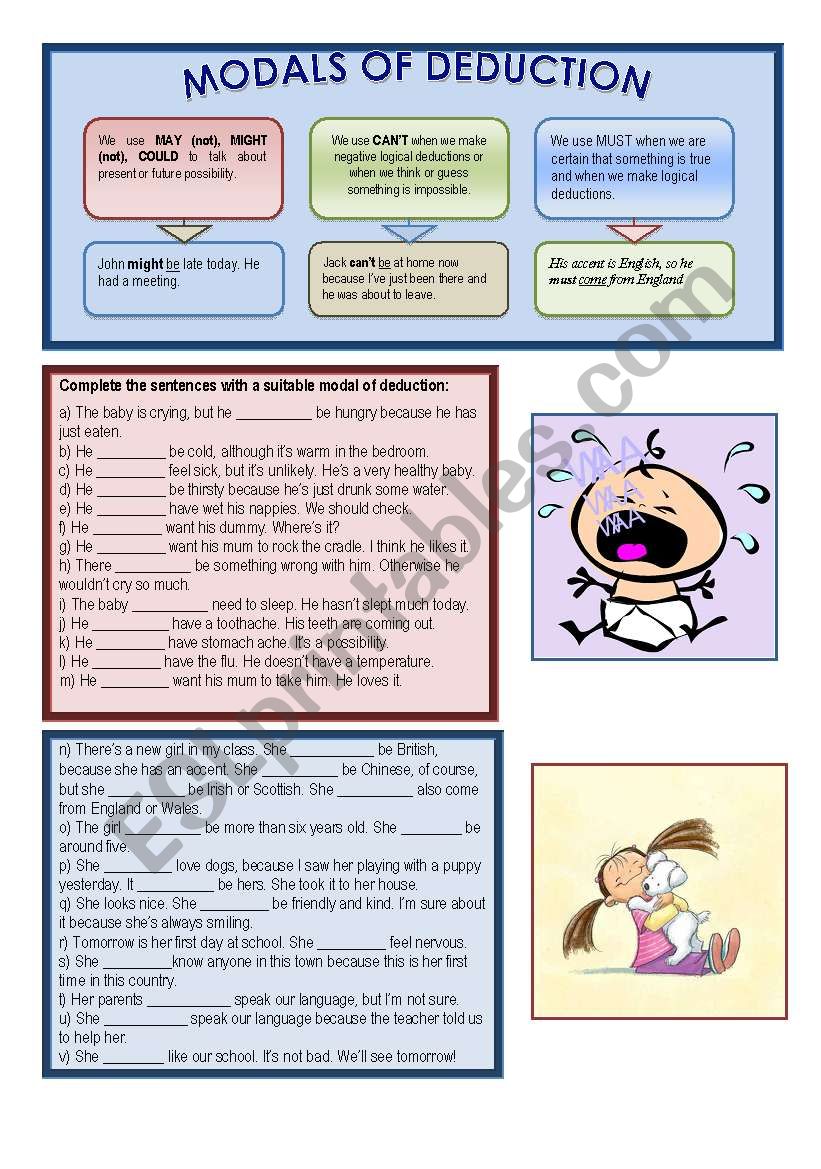
modals of deduction ESL worksheet by Nuria08
The modals of deduction are used to indicate degrees of certainty or probability when making deductions or drawing conclusions about a situation or event. The English modal verbs "must", "have to","may", "might" "can't" and "couldn't" are used to express deduction and contention. Modal verbs are used to state how.

Modal Verbs of DEDUCTION My Lingua Academy
Modals of deduction (past) SB page 89 6 Match the sentences. 1 She must have been happy. 2 She can't have been happy. 3 She might have been happy. 4 He must have been hungry. 5 He can't have been hungry. 6 He could have been hungry. a Her husband crashed her car again. b He ate everything. c But he was too polite to ask for any food.

PERFECT MODALS OF DEDUCTION worksheet in 2021 Grammar worksheets
modals of deduction must, might, can't. Type the correct answer into the box. must can't might
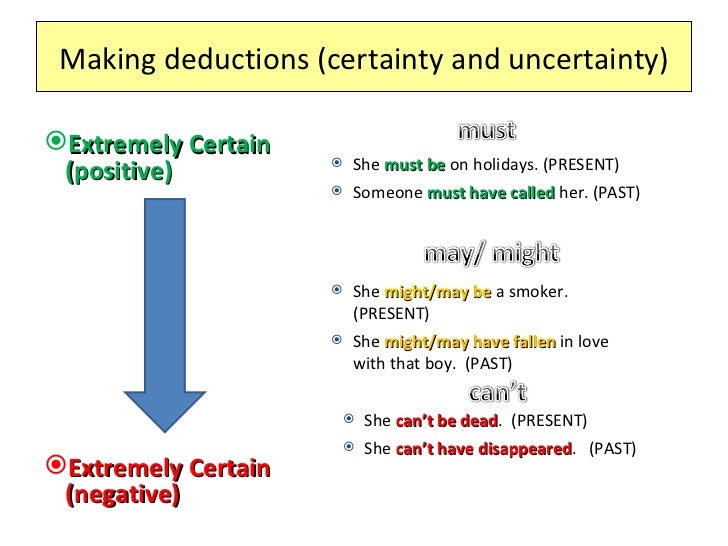
My English Blackboard MODAL VERBS OF DEDUCTION
We can use modal verbs for deduction - guessing if something is true using the available information. The modal verb we choose shows how certain we are about the possibility. This page focuses on making deductions about the past. must have We use must have + past participle when we feel sure about what happened.

Modal Verbs of Deduction Worksheet for 4th 6th Grade Lesson
We use modal verbs in a situation where we need some level of deduction which means we say how sure we are about something. Must. We use 'must' when we feel sure that something is true because we have some information about the situation, we have strong evidence. She must live close to where she works because she walks to work.
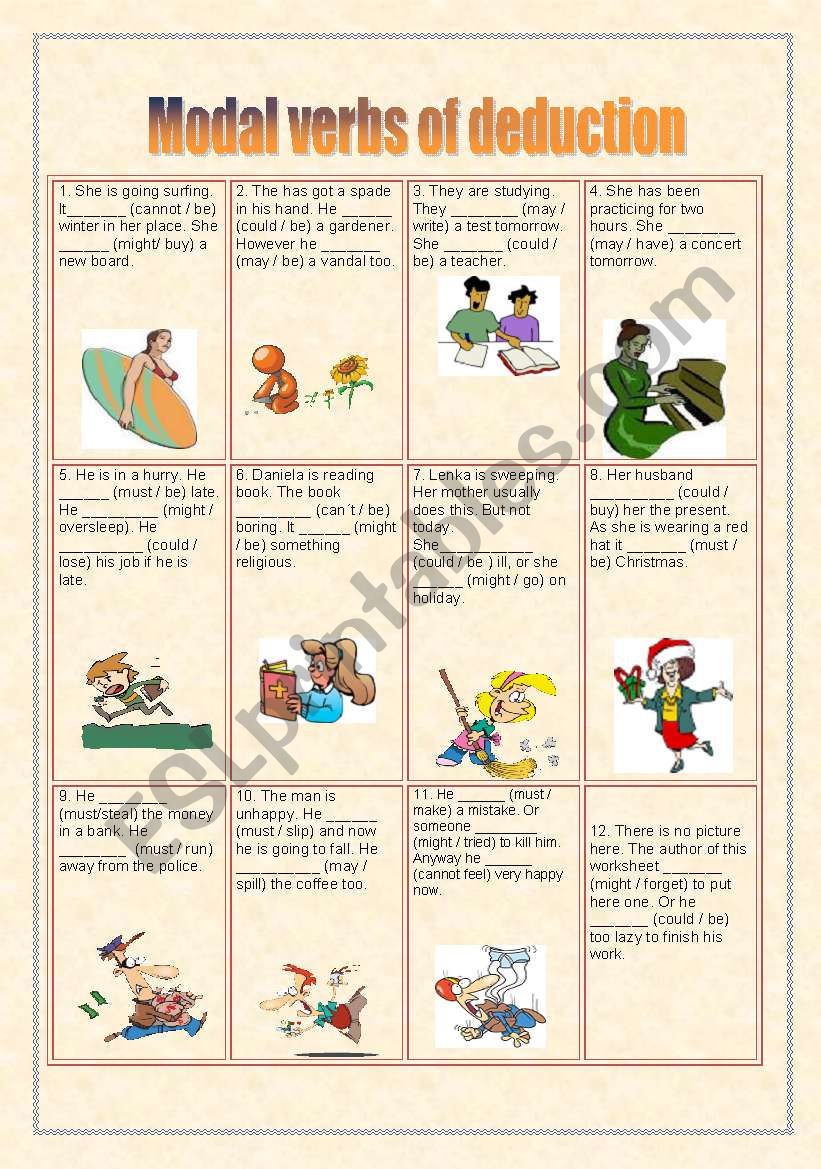
Modal verbs of deduction ESL worksheet by Zdenda
Modal verbs of deduction Modal verbs - short answers Ability: can - could - might. Have to, must, should Permission - obligation Offers and requests - exercises Possibility - modal verbs Ability - modal verbs exercises Advice - modal verbs exercises Can / must / should - tests next page - can / could - will / would must / have to

Grammar videos Modals of deduction exercises 1. Check your grammar
"Deduction" means using the information available to make a guess or draw a conclusion about the facts. Depending on the information available, you might be more certain that your conclusion is true, or less certain that your conclusion is true - and we use different modal verbs to indicate the degree of certainty. Let's look at some examples.

Worksheet to review modals for logical deduction. The modals presented
Students > English File > Intermediate third edition > Grammar > File 6 > Lesson B modals of deduction: might, can't, must (2) Grammar. Vocabulary. Pronunciation. Practical English. Downloads. Mini Phrasebook. Learning Record. → File 01.
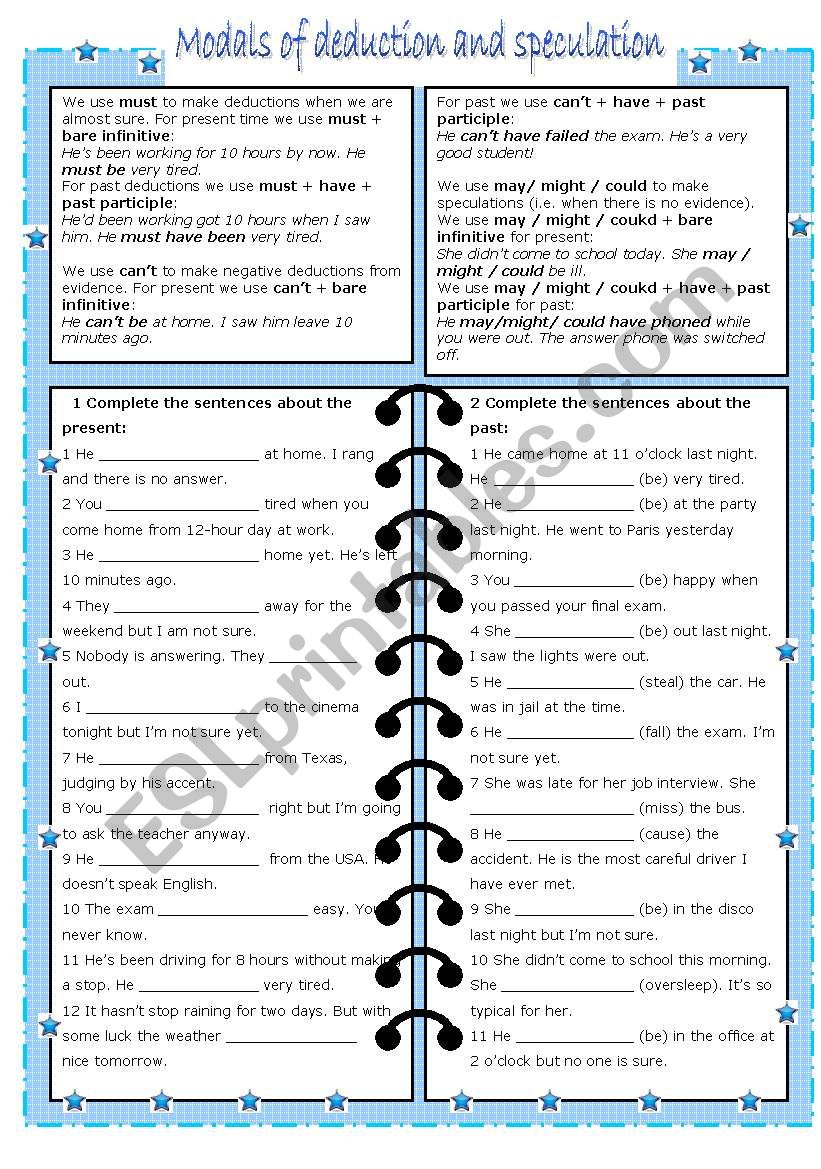
Past Modal Verbs Of Deduction Exercises Online degrees
Modal verbs of deduction - Grammar chart. Download full-size image from Pinterest May, might. We use may and might to talk about things that are possibly true, but we don't know for sure. He's more than 2 meters tall. He might be a basketball player. (=perhaps he is) He says Betty is his friend, but I think she may be his girlfriend.
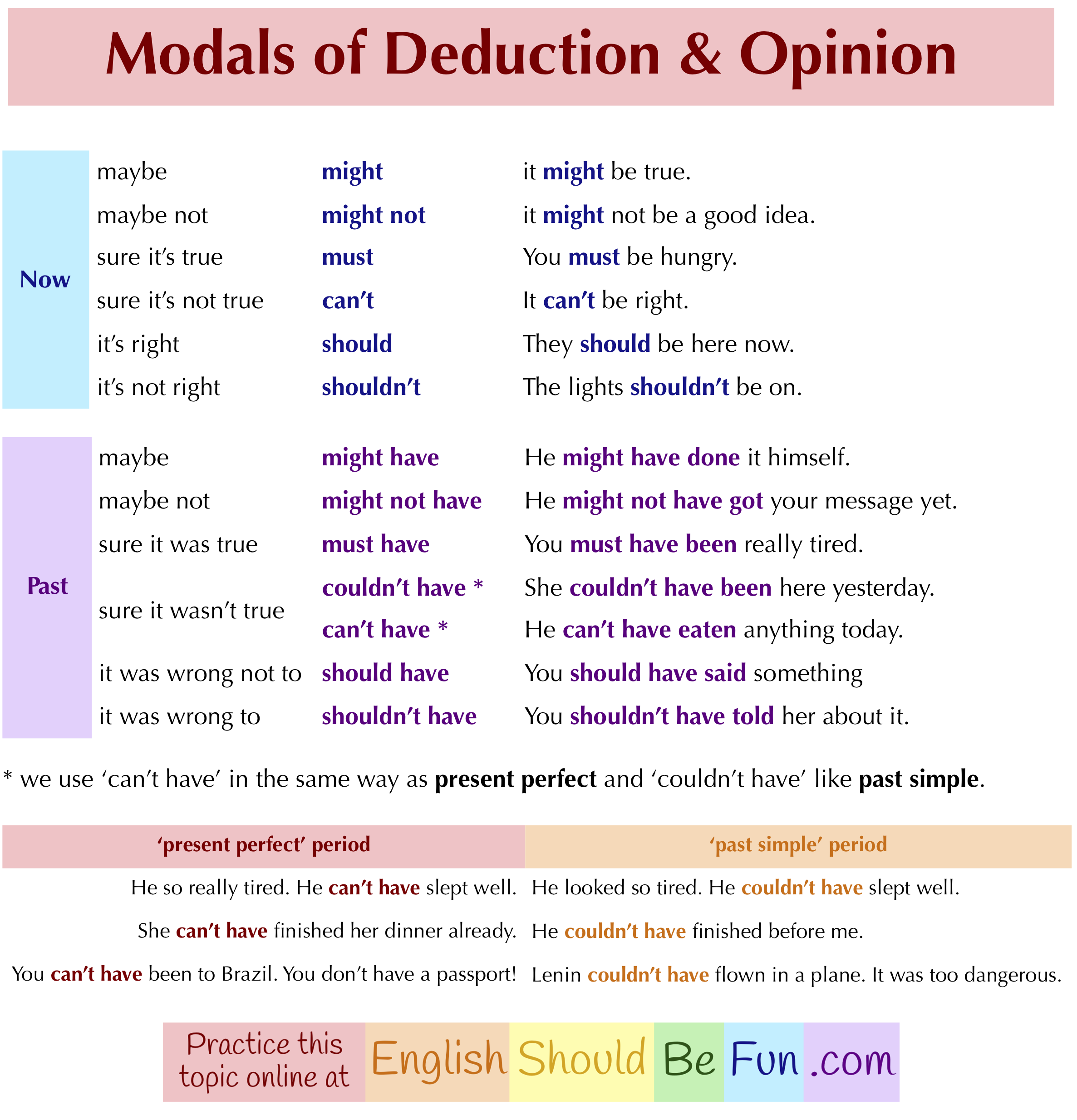
Deduction modals overview English Should Be Fun
Modal of deduction: must We use MUST when we have strong evidence and we are certain that something is true. You must be tired after such a long drive. She must be the new boss. I saw her in the boardroom. They must have been shopping. Look at all those bags! This window's smashed. The thieves must have climbed in here.
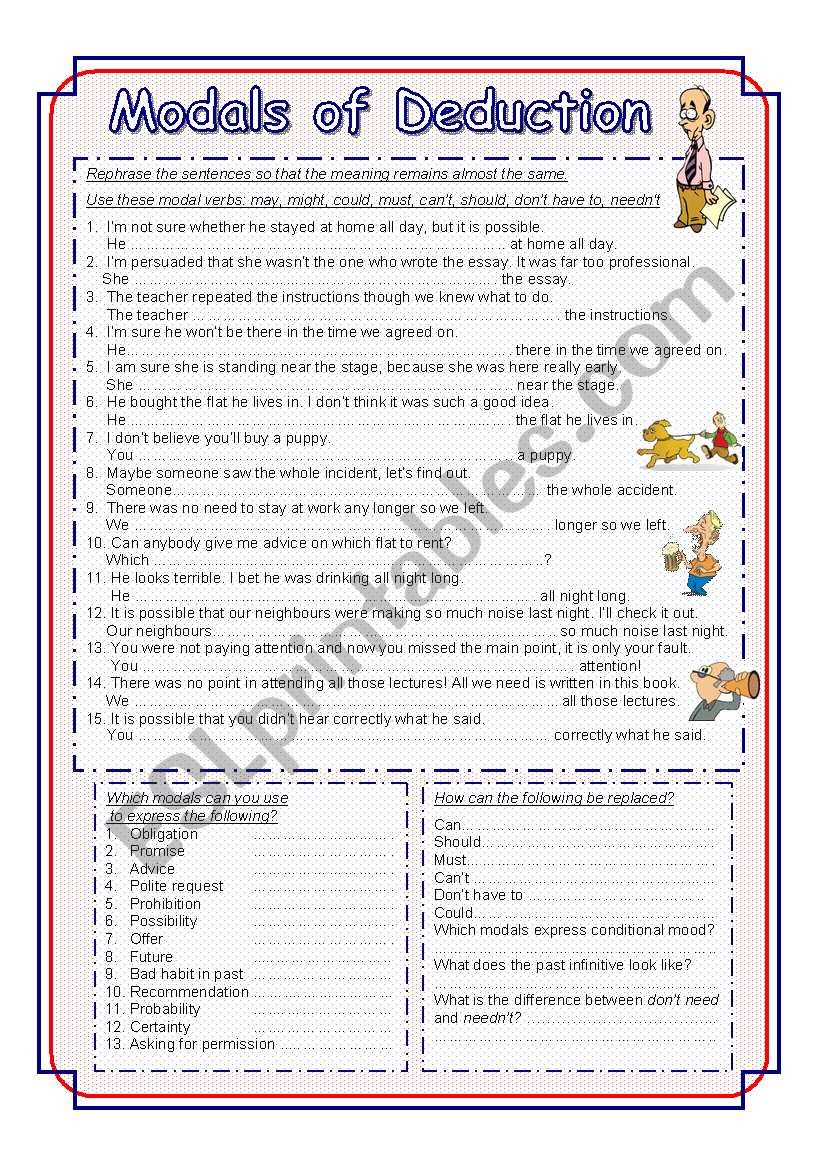
Modals of Deductions exercises ESL worksheet by mish.cz
Instructions 0:00 / 2:57 720p Transcript We use the modal verbs might, may and could + an infinitive form without to when we think it is possible that something is true. We use must when we are sure it is true and can't when we are sure it isn't true. So we can use might, may and could for making guesses? Yes.

29 Deduction English ESL worksheets pdf & doc
Click here for all the exercises about modal verbs. We can use these modal verbs (also called modals of deduction, speculation or certainty) when we want to make a guess about something. We choose the verb depending on how sure we are. 1: Talking about the present: must / might / could / may / can't + infinitive
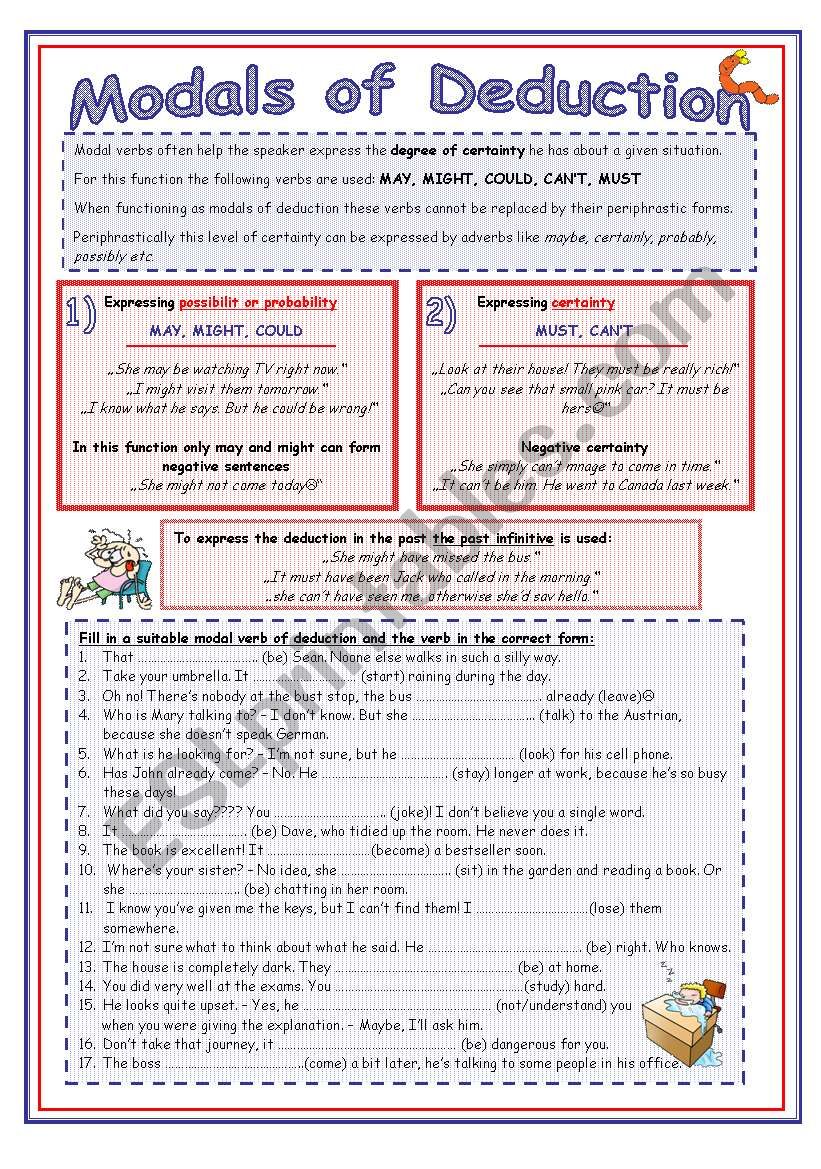
Modals of Deduction ESL worksheet by mish.cz
What is Modals of Deduction? Modals of Deduction Examples and Exercises - GrammarSimple.Com Grammar Adverbs Adjectives Articles Conjunctions Conditionals Contractions Determiners Gerunds Infinitives Modal Verbs Prepositions Sentences Tenses Pronouns Vocabulary Abbreviations Animals Synonym Opposites Transition Words Collective Nouns Collocations